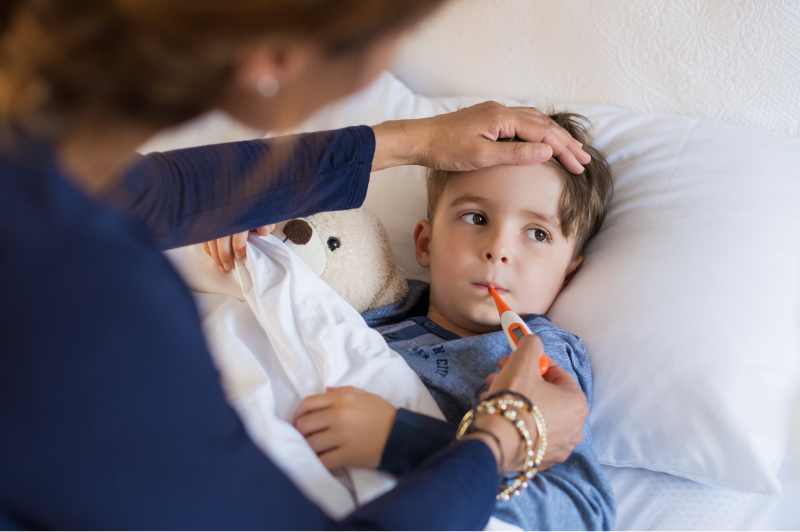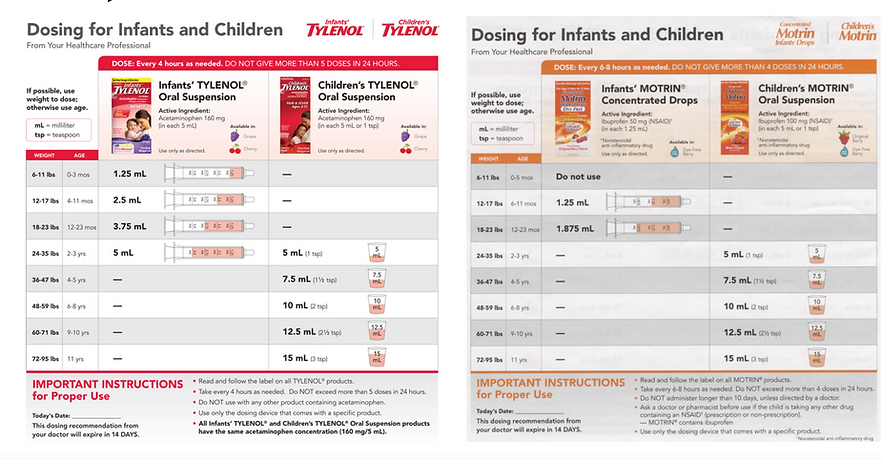Caring for the
Health & Well-Being
of your Child
|
|
|
|

Our Caring Staff
|
|

Scheduling & Billing Information |
|

Contact Us
|
|
|
|
Award-Winning Pediatricians in Warren, Michigan
Entrust the health of your child to our experienced pediatricians. For more than 40 years, the team at Macomb Pediatric Associates, P.C., has shown a true passion for taking care of young patients and meeting any medical needs they may have. We provide exceptional care for your child throughout every stage of his or her development, from the time they are newborns. We offer a variety of pediatric medical services, including:
• Immunizations
• Well Visits
• Sick Visits
• ADHD & ADD Checks
• Asthma Treatment |
• Monthly Exams
• Annual Physicals
• Sport Physicals
• School Vaccinations
• Kindergarten Checks |
|
 |
Growing with Our Patients
Over the course of the past several years, we have been pleased to see our practice grow. We now have two locations to serve you: one in Warren, Michigan, and another on Garfield Road in Clinton Township. Your child can be seen at either office.
|
|
|
Choose an award-winning
doctor's office to care for your child.
Call (586) 573-9090
|
|
|
Friendly Reminder–Macomb Pediatrics is Not Accepting Non-Vaccinating New Patients
Thank you for considering Macomb Pediatrics! We appreciate the trust you have placed in us, and we will strive to provide the high quality of medical care that you expect. We know that the most important asset of our practice is you. We value our relationships with our patients, and pride ourselves on our giving you the considerate, deliberate, and exceptional care that you deserve.
|
|
|

|
Expecting Parents
Congratulations! The birth of your child is one of the happiest and special moments of life! We are honored you are entrusting your family’s care at MPA. We know that your family is the most important asset of our practice. Our goal at Macomb Pediatric Associates, P.C. is to support families by assisting them to navigate through all the developmental stages of their child’s life.
|
Meet the Provider!
In preparation for your child’s arrival, we offer a “Meet the Doctor/Provider” consultation as you decide on your new pediatrician. This allows you to build a trusted relationship prior to your first appointment.
Friendly Reminder:
Macomb Pediatric Associates, P.C. is not accepting non-vaccinating patients.
Children who are not vaccinated can transmit vaccine- preventable diseases at schools and in the community. Unvaccinated children can infect babies who are too young to be fully immunized. Unvaccinated children can infect people of any age who can't be immunized for medical reasons.
What’s Next?
Upon delivery, a hospital pediatrician will examine and discharge your child home. Within one to two days post discharge you will call the office to set up the initial New Patient Newborn appointment. Please bring your discharge paperwork, driver’s license & insurance card to the first appointment at Macomb Pediatric Associates, P.C.
You will have 30 days to put your newborn child onto a health insurance policy. All HMO & Medicaid policies will require a Primary Care Physician (PCP) to be assigned to the insurance policy. Please be sure to select one of our MD providers, Dr Antoun Oska or Dr Ashraf Berry and the policy begins at the patient’s date of birth.
After establishing the newborn baby in the office, we will follow the AAP Schedule of Well-Childcare Visits:
The first week visit (3 to 5 days old)
|
1 month old
2 months old
4 months old
6 months old
|
9 Months old
12 Months old
15 Months old
18 months old
|
2 years old (24 months)
2 ½ years old (30 months)
3-21 years old yearly annual wellness well- child physical exam
|
What’s Next?
We establish all new patients on a well-child physical exam. Please confirm the date of your child’s last physical exam. We also require a copy of the previous medical records. You may use our Medical Release Form to send to your current practice to request records to be sent to our office. Please call either office location to begin registration.
|
|
|
Vaccines Schedule
At MPA we follow the CDC guidelines for the immunization schedule check out the link bellow:
https://www.cdc.gov/vaccines/schedules/hcp/imz/child-adolescent.html
Your child will be vaccinated at these visits.
First visit as a newborn (3-5 days old)
|
2 Months
4 Months
6 Months
12 Months
15 Months
|
18 Months
3 Years
4 Years
11 Years
16 Years
|
|
Well-Childcare Visits
The first week visit (3 to 5 days old)
|
1 month old
2 months old
4 months old
6 months old
|
9 Months old
12 Months old
15 Months old
18 months old
|
2 years old (24 months)
2 ½ years old (30 months)
3-21 years old yearly annual wellness well- child physical exam
|
|
|
NEWBORN CARE
INSTRUCTIONS FOR NEWBORN CARE
|
During the next few days, most of your time will be spent resting and regaining your strength. You can put this time to good use by getting to know some of the simple things which will help to make life with your baby easy and fuss-free.
Parenthood is one of the most exciting experiences you will ever have, but it is also a bit frightening, especially if you are a parent for the first time. We will assist you in gaining confidence in your parenting skills here in the hospital and during the first weeks and months at home. We encourage you to read this booklet and discuss any questions you have about our daily hospital visits. We also encourage you to remember to nurture your family relationships as this is also important to the health and happiness of your baby.
|
 |
You will quickly discover that your baby has a unique personality just as every adult does. Some babies are quiet, docile, and even tempered. Others are irritable, always hungry, and poor sleepers. Most are between these extremes.
We view our main job as that of educating you in the science and art of parenting. In our well baby visits, our providers will cover aspects of feeding, discipline, safety, and disease prevention as they apply at different ages.
OFFICE VISITS
Your baby should have the first office check-up at 3 or 5 days of age. You will be seen in the hospital by the doctor assigned for hospital rounds. You should schedule your first office visit as directed by that doctor. It may be the next day following discharge or up to 5 days later depending on the length of your hospital stay and presence of jaundice or feeding problems. After discussion with the doctor in the hospital, please call the office for an appointment.
Along with the check-up examination we will want to discuss your baby's growth, development, and the many interesting things that you can expect your baby to do within the next few months. Bring your discharge from the hospital paperwork with you for your baby’s first visit. Be sure to bring along extra diapers and a bottle of formula (if bottle feeding) when you come to the office.
JAUNDICE
Jaundice is a condition that commonly occurs in newborn infants. Jaundice is a French word that means "yellow" and it describes the yellow color of the skin. There may also be yellowing to the whites of the eyes. Jaundice usually appears on the second or third day of life and often disappears in about a week. As many as two-thirds of infants may have jaundice because jaundice occurs when the liver is not fully mature. The liver ordinarily rids the blood of a substance called bilirubin. When new red blood cells are created, the old blood cells release bilirubin which is removed from the body by the liver. When the liver is not fully mature, it does not function properly, and the bilirubin tends to build up in the baby's blood. Because bilirubin is yellow, it causes the skin to become yellow as well. This condition is known as jaundice. More serious types of jaundice can occur when the baby's blood type is different from the mother’s. If jaundice is more severe or if the level of bilirubin gets too high, treatment will probably be necessary. A technique called phototherapy is used. Phototherapy is a treatment using special light therapy. These lights cause a chemical reaction to occur that hastens the removal of bilirubin from the body. These high intensity lights are placed over the baby. The baby is kept warm and has protection from the lights over his/her eyes. This is done either in the hospital or by special arrangement with a home health nurse. Sunlight or the lights you have at home DO NOT HAVE enough of the correct intensity to help lower the bilirubin level. The phototherapy is continued until the bilirubin drops to a safe level. The level is checked by testing a sample of blood. For reasons that are unclear, excessive jaundice sometimes occurs in breastfed babies. If your baby is even slightly jaundiced at the time of discharge, we require you to come back to the office in a day or two to have a bilirubin level checked. If the level has risen significantly, this may mean that the baby may need to receive phototherapy.
|
|
|
Teen Well Visit Policy
 |
Dear Parent/Guardian,
Adolescence is very difficult and rewarding at the same time for both parents and teens. We at Macomb Pediatric Associate, P.C. want your child to learn to take an active role in their medical care. We want your child to be ready to discuss and promote their own health. During the yearly well visit we will give your teen some time to talk in private with their provider so they can talk about any issues that are worrying them. These discussions will be private so your teen can feel comfortable talking about their health or social issues with us. If there are any concerns about self-harm or harm to others, we will inform you. We will always encourage your teen to discuss their visit with you.
|
At MPA we follow the CDC guidelines for health screenings.
During the teen well visits we will screen all 16 years of age and older for Chlamydia and in some cases, we screen the teens who are younger if necessary. This screening is recommended because certain infections often do not have signs and can cause life-long health issues. This screening will be done by collecting a urine sample and sending it for further testing.
Our entire team at MPA looks forward to being part of your teenager’s Journey as they develop into mature and independent adults.
Sincerely,
The Providers at Macomb Pediatric Associates, P.C.
|
|
|
Fever
Management of Fever
|
Fever is a symptom, not a disease. It is usually a sign of infection. Fever is part of your child’s defenses against infection, helping to “burn out” the germ causing bacteria.
When your child has an infection, antibiotics may be required, but only if the infection is caused by bacteria. Fever is more often caused by viruses than by bacteria.
Infants and children frequently get temperature elevations less than 100.4 degrees Fahrenheit 3 months or younger or less than 102.2 degree Fahrenheit for children older than 3 months. This degree of fever is not harmful and is NOT a medical emergency.
|
 |
Temperatures taken at home by ear probes and temporal (forehead) Not a medical grade probes are not as reliable, and we urge you not to use them. Digital thermometers are inexpensive and are very accurate. The most accurate temperature is taken rectally. An axillary temperature (taken high up in the child’s armpit) is an acceptable alternative. The oral (mouth) temperature is best only in children over four years of age. It is inaccurate if liquids have been taken recently, whether hot or cold, if the mouth is open or if your child cannot hold it under the tongue.
When reporting fever to our nurses or doctors, please DO NOT add or subtract degrees because it is very confusing. Just be sure to take the temperature accurately and report which method was used.
If your child has fever, there are several things you can do to help relieve discomfort:
- Give plenty of cold fluid (popsicles, Jello, tea, ice chips, etc.). Appetite for food is usually decreased with fever but should improve when the child begins to feel better.
- Dress your child lightly and remove all tight-fitting clothing. Bedclothes should also be light.
- Fever reducing agents (acetaminophen or ibuprofen) can be used. Remember that your child will usually have a fever for 2-3 days with most illnesses even if antibiotics and other measures are used. After your child has been examined by the doctor and treatment has begun, if he/she becomes quite ill with difficulty breathing, extreme sleepiness, severe vomiting, or other symptoms not anticipated by the doctor, we
should be notified again.
We do not recommend aspirin with fever due to the possibility of developing Reye syndrome.
- If the fever is over 104 degrees, in addition to fever reducing analgesics, you can sponge with water that is lukewarm (neither hot nor cold). Rub the skin briskly with a washcloth, especially in the armpits, back and groin or place the child in a tepid bath. We do not recommend bathing while rubbing alcohol.
- REMEMBER, acetaminophen and ibuprofen can be dangerous so return bottle to a safe place and don’t exceed the recommended dosage of acetaminophen or ibuprofen.
YOU NEED TO CALL OUR OFFICE DURING REGULAR OFFICE HOURS IF:
- Your child seems very ill.
- Fever continues for more than 24 hours, and your child has not been examined in the office.
- Fever of any degree if your child appears very ill and has not been examined in the office.
YOU NEED TO CALL OUR OFFICE DURING REGULAR OFFICE HOURS IF:
- Your child is less than 3 months old and has a rectal temperature greater than 100.4 degrees F. and has not been seen by the doctor.
- Fever of greater than 102.2 degrees F. and has not been seen by the doctor.
- Your child is extremely irritable and cannot be consoled, regardless of the temperature.
- If the fever reaches 105 degrees, you must seek emergency care.

|
|
|
Vomiting
WHAT CAN I DO IF MY CHILD IS VOMITING?
• Hand washing and keeping things clean are your best defenses from getting ill with a stomach bug. Not surprisingly, this is particularly true after touching or supporting your child and when preparing food and eating. Some viruses will survive on surfaces for days. And some viruses like Norovirus can even survive hand sanitizer. You must use soap and water to kill it. But even with ridiculous, meticulous attention to hygiene, every parent knows that when the vomit is flying, it’s hard to lasso every single errant particle. So simply commit to doing your best. Change the sheets and clean up areas of vomit immediately after supporting your child. Soapy warm water is your friend. Wash surfaces immediately, use hot water for the wash, and use high heat in the dryer.
• 24 hours (or so): In general, most pediatricians will tell you that vomiting doesn’t exceed 24 hours with typical gastroenteritis. Occasionally it can. Many kids don’t follow the rules. Once a virus that causes gastroenteritis takes hold of a child, vomiting starts. Children tend to vomit more than adults. Part may be an easy gag reflex. With most viruses that cause the “stomach flu,” as the infection moves through the stomach and intestines, vomiting stops after about 24 hours. But not always. If you advance liquids too quickly or children eat more solids than they are ready for, even after the first meal 1 to 2 days into eating again, they may have a vomit encore. If you have one of those, start back where you started (sips of clear liquids) and go very slowly advancing their diet. If vomiting is accelerating at 24 hours, it is time to check in with your child’s doctor.
• Disgusting and terrifying: It is not easy to take care of a child while vomiting. Not only is it entirely gnarly and disgusting to remove and clean chunks from vomit-laden carpet, sheets, and clothing, but it is also terrifying to provide support to a vomiting child because you can get equally uneasy about catching the virus. You’re not alone in this. It’s absolutely nauseating to see your own child ill, unwell, and retching. And it’s awful to imagine having to provide care while getting miserably sick. Do your best to keep your hands washed to stay healthy. As all of us know.
• Medication: Children rarely need medication when recovering from gastroenteritis. Although some antinausea drugs are available for use in children, most children don’t need prescription medications. Talk with your child’s pediatrician if you feel you child is vomiting longer than 24 hours or becoming dehydrated. Remember that vomiting is a protection reaction of your child’s body to clear infection.
• Soap, water, and bleach are the best disinfectants.” Cleaning your home to avoid spreading infection is a must. You don’t need expensive products, just vigilance. With some highly infectious viruses that cause vomiting, even 10 viral particles can cause illness. So in addition to soap and water, consider using a dilute bleach solution to clean hard surfaces.
|
|
|
Contact
Thank you for choosing MPA for your child health care services. Please reach out with questions or comments using the information below. We look forward to hearing from you..
|
Warren Location
Primary Address
27070 Hoover Rd. #A
Warren, MI 48093
Phone
(586) 573-9090
Fax
(586) 573-2128
Hours of Operation
Monday - Friday: 9:00 a.m. - 5:00 p.m.
Saturday, Sunday, & Major Holidays:
Closed
ON CALL
If it's an emergency, please call 911.
One of our own providers is on Call every single day including weekends & Holidays.
To reach our provider on call:
After hours Monday-Friday after 4:30 PM call 586-573-9090.
Weekends and Major Holidays call anytime 586-573-9090.
|
|
|
|
Clinton TWP Location
Garfield Location
Secondary Address
39200 Garfield Road, #E
Clinton Township, MI 48038
Phone
(586) 353-5213
Fax
(586) 263-7789
Hours of Operation
Monday - Friday: 9:00 a.m. - 5:00 p.m.
Saturday, Sunday, & Major Holidays:
Closed
ON CALL
If it's an emergency, please call 911.
One of our own providers is on Call every single day including weekends & Holidays.
To reach our provider on call:
After hours Monday-Friday after 4:30 PM call 586-573-9090.
Weekends and Major Holidays call anytime 586-573-9090.
|
|
|
|
Service Area
Clinton Township and Warren, MI,
as Well as the Surrounding Areas
Share
View Our Locations
|
|
|
|
|
|